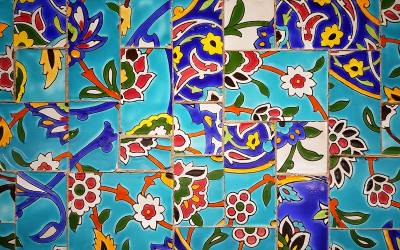The Middle East Research Centre (MERC), launched in 2020, provides a focal point for in-depth research on the Middle East and North Africa at UCL.

MERC promotes research and teaching related to the region and its intersection with the wider world, from antiquity to the present. The Centre brings together experts across several disciplines and departments, and serves as a vital hub for researchers, postgraduate and undergraduate students with an interest in the Middle East and North Africa.
MERC seeks to build on existing sites of inquiry and to stimulate new avenues of scholarly practice by supporting multi and interdisciplinary collaboration across UCL. The Centre draws on comparative and trans-disciplinary research across geographies and disciplines, in the humanities and the social sciences. While advancing academic knowledge within the University, it also provides a conduit to the wider public, as well as policy-makers, civil society and the media. As the Centre grows, it aims to expand teaching and research opportunities, a diverse programme of scholarly seminars, workshops, and public events, and a network for expert analysis and commentary on a range of regional issues. MERC works to foster an intellectually stimulating environment for UCL staff and students engaged with the Middle East and North Africa at all stages of their careers and learning. Our location in central London offers a vibrant cultural forum for collaboration with regional artists, writers, filmmakers, and diaspora communities in the UK and beyond.
We firmly endorse decolonial approaches to the Middle East and North Africa that can critically examine how colonial history, contemporary geopolitical hegemonies, and structural violence persist and are replicated within the region. UCL scholars have been called on by regional partners to shape policy and action in government, civil society organisations and commercial sectors around the globe, most recently with the UCL Qatar initiative. MERC’s initial priorities for future research and teaching are located in four key areas: (1) urban space/place, (2) environment and climate change, (3) education and culture, and (4) political economy.
MERC is based in UCL’s Institute for Advanced Studies ‘Area Studies Re-Mapped’ initiative, which explores the connections between space and place, as well as the changing historical and geographical construction of region, boundary, border and area with all its political, social and physical complexity.
 Close
Close

